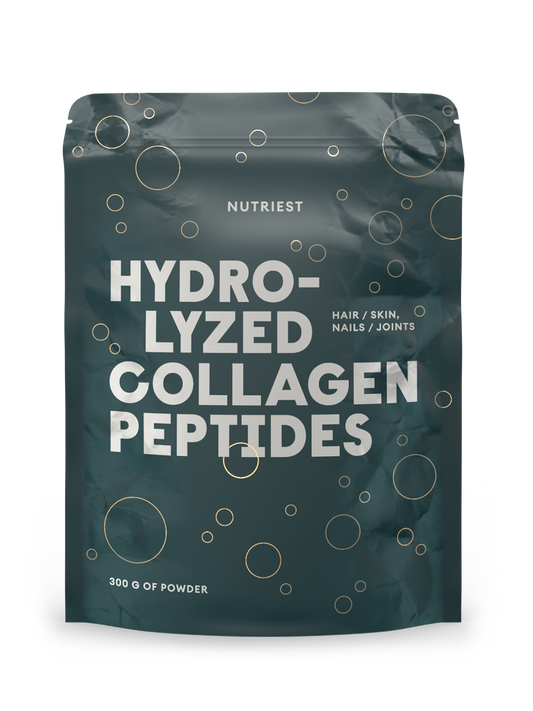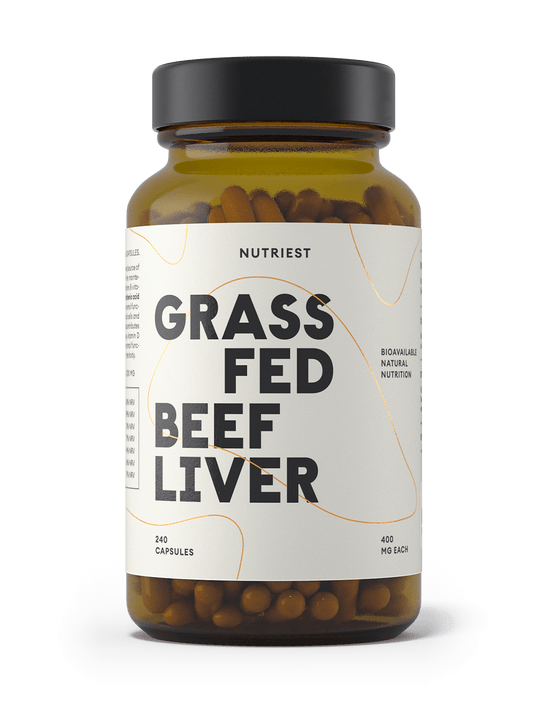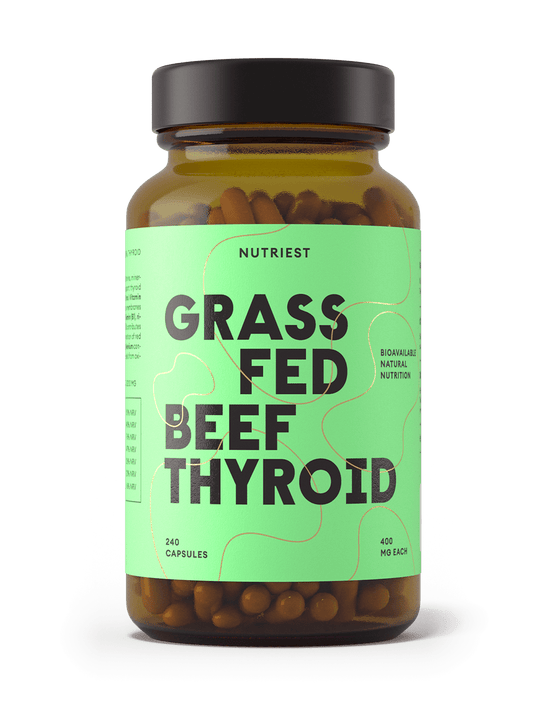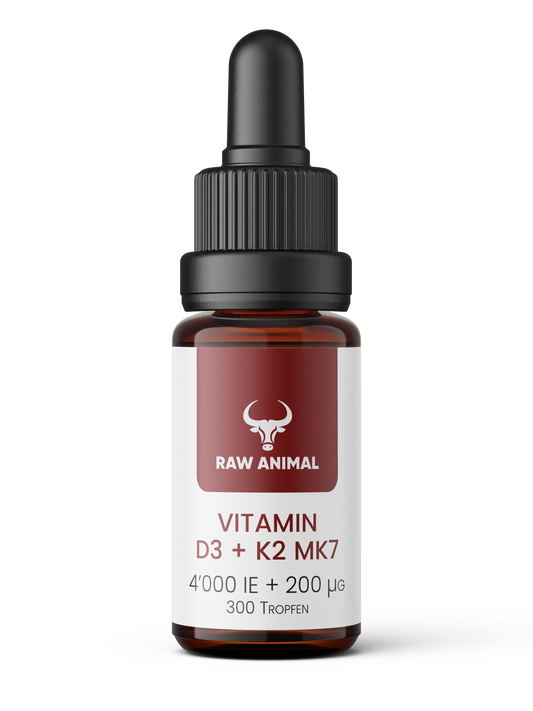The Warburg effect describes a fascinating but often overlooked phenomenon: Even with sufficient oxygen, many cells produce their energy not through efficient cellular respiration, but through the less effective lactic acid fermentation. This process is not only inefficient—according to biologist Ray Peat, it is at the heart of numerous chronic diseases, most notably cancer.
The thesis of this article: Cancer is not an inevitable fate, but the result of disrupted cellular energy. Instead of focusing on genetic defects, Ray Peat advocates a radical shift in perspective—toward an understanding of health based on the energetic state of your cells. In this article, you'll learn how you can strengthen your cellular energy through targeted nutrition, hormonal balance, and conscious lifestyle choices, thus actively contributing to cancer prevention.
The Warburg Effect – what really happens in your cells
The Warburg effect describes a condition in which cells generate their energy primarily through lactic acid fermentation rather than through normal cellular respiration—even when sufficient oxygen is available. This discovery was made by the German biochemist Otto Warburg and was long considered merely a side effect of cancer. Ray Peat, however, interprets the Warburg effect not as a consequence, but as a cause: When your cells no longer breathe properly, they lose their ability to generate energy efficiently—and this is precisely where the pathological development begins.
Peat emphasizes that impaired cellular respiration has far-reaching consequences. The decline in oxidative energy production forces the cell to resort to the inefficient anaerobic pathway, which leads to increased lactate production , tissue acidification, and chronic inflammation . These conditions create an ideal environment for the growth of malignant cells.
Another aspect is the role of cellular energy in tissue regeneration. When your mitochondria—the powerhouses of your cells—are under stress, for example, due to chronic inflammation, PUFA depletion, or hormonal imbalance, they lose their ability to repair themselves. The result: Tissue hardens, collagen builds up uncontrollably, and oxygen supply deteriorates further—a vicious cycle that, according to Peat, contributes to the development of cancer.
This section shows you why it's so crucial to pay attention to cellular energy —not just as a source of energy, but as the foundation of your health. In the next chapter, you'll learn how certain fats can sabotage this process and what you can actively do about it.
Why PUFA can sabotage your energy production
When it comes to your cellular health, fats play a much bigger role than many people realize. PUFAs in particular— polyunsaturated fatty acids such as linoleic acid and DHA—are often considered "healthy" in conventional diets. But according to Ray Peat , they can have the exact opposite effect: They disrupt your mitochondria, promote oxidative stress, and suppress your cells' energy production.
PUFA: From superfood to cell stress factor
PUFAs are particularly unstable. Due to their chemical structure, they oxidize easily—especially under the influence of light, heat, and oxygen. This oxidation produces so-called lipid peroxidative byproducts , which damage your cell membranes, inhibit thyroid function, and block enzymes necessary for cellular energy production .
Studies show that high PUFA consumption is associated with an increased risk of chronic diseases such as diabetes, cardiovascular disease, and even cancer. An analysis in the Journal of Lipid Research found that oxidized linoleic acid breakdown products (e.g., 4-HNE) are directly associated with mitochondrial dysfunction and cellular stress.
According to a US survey , average daily PUFA consumption in the Western world is over 15 g per day —a figure that has increased tenfold over the last 100 years. This correlates strikingly with the rise in chronic diseases over the same period.
Ray Peat's advice: prefer saturated fats
Peat argues that saturated fats such as coconut oil, butter, or beef tallow are more stable than PUFAs and therefore more cell-friendly. They promote thyroid function, improve insulin sensitivity, and protect mitochondria from oxidative damage.
Specific tip for you : Avoid industrially processed vegetable oils like sunflower, soy, or corn oil. Instead, opt for animal fats, eggs, butter, and coconut oil. These not only provide you with stable energy but also protection at the cellular level—exactly what you need to prevent or even reverse the Warburg effect .
In the next section, you will learn what role your thyroid plays in overcoming this energy deficiency permanently.
Thyroid: Your underrated energy booster
The thyroid is the control center of your metabolism—and, according to Ray Peat , perhaps the most important lever when it comes to preventing cellular energy deficiency , as described by the Warburg effect . When your thyroid isn't functioning properly, your baseline temperature drops, your metabolism slows, and your cells more frequently switch to "emergency mode" of lactic acid fermentation. The result: chronic fatigue, sensitivity to cold, weight gain—and, in the long term, an increased risk of degenerative processes.
Why is the thyroid so crucial for your cellular energy?
The thyroid produces the hormones T3 and T4 , which directly stimulate the activity of mitochondria—your cellular powerhouses. Only when sufficient levels of active thyroid hormones are present can your cells efficiently generate energy through cellular respiration (oxidation).
Ray Peat emphasizes that even subclinical hypothyroidism (i.e. values within the “normal range”) can lead to a chronic lack of energy supply to your cells – a condition that often goes undetected.
Frequently asked questions about the thyroid – and clear answers
“I have normal blood values – could my thyroid still be under-functioning?”
Yes, according to Peat, it's very common. Standard laboratory tests (e.g., TSH) are often insufficient to detect functional disorders. Your symptoms are much more important: cold hands and feet, low body temperature (<36.5°C in the morning), mood swings, hair loss, or digestive problems can indicate slowed thyroid function .
“What can I do to naturally support my thyroid?”
Ray Peat recommends the following measures:
-
Sufficient animal protein (especially gelatin/collagen and dairy products) to promote hormone production.
-
Avoid PUFAs (as explained in section 2) as they inhibit thyroid function.
-
Daily body temperature measurement to make progress visible.
-
Light therapy or regular sun exposure to stimulate hormone balance.
“Do I need iodine or thyroid hormones?”
Peat is cautious about iodine: Too much can overwhelm the thyroid. Instead, he advocates the targeted use of natural thyroid extracts —but only with close monitoring of body temperature and pulse rate.
A well-functioning thyroid is the basis for stable cellular energy production —and thus a key prerequisite for counteracting the Warburg effect in the long term. In the next section, we'll take a look at connective tissue and why collagen plays a surprisingly important role in this context.
Collagen and hardened tissue – the silent breeding ground for cancer
Collagen is often celebrated as a miracle substance for skin, joints, and connective tissue. But Ray Peat also sees a potential danger in it – at least when collagen is deposited excessively or uncontrollably . This is because collagen makes tissue stable, but also rigid. And it is precisely this hardening that can massively restrict the oxygen supply to the cells – a scenario that exacerbates the Warburg effect .
How does Peat link collagen and cancer?
According to Peat, cancer doesn't develop randomly, but rather occurs where tissue is chronically stressed and hardened —for example, due to inflammation, radiation, stress hormones, or collagen-rich scarring . This "matrix-like" environment blocks microcirculation and prevents oxygen from reaching the cells. Without oxygen, the cells switch to fermentation—and this condition, according to Peat, can be the beginning of cancer development.
What you can do:
-
Avoid chronic inflammation through diet, exercise and targeted relaxation.
-
Support the natural collagen balance , e.g. with vitamin C , sufficient protein and good thyroid function .
-
Be critical of high-dose collagen supplements – your body often needs more help breaking down old collagen structures than building new ones.
Cellular energy instead of genetic fear – a different view of cancer
For many, "cancer" sounds like an inevitable genetic fate. But Ray Peat takes a completely different view: Cancer is not a primary defect in DNA—rather, it is the result of a profound energy deficiency at the cellular level . And this is precisely where the keyword "cellular energy cancer" comes into play.
The cellular perspective
Peat sees healthy mitochondria—that is, functioning cellular respiration—as a protective mechanism against any kind of uncontrolled cell growth. When energy production collapses , cells lose their differentiation, behave "wildly," and escape the organism's control.
This view is supported by numerous studies, such as the work of Thomas Seyfried, who also describes cancer as a "mitochondrial disease." Cell culture experiments have shown that healthy mitochondria can transform cancer cells back into normal cells —a fascinating indication of the importance of cellular energy.
What does this mean for you?
-
You have more influence on your cellular health than you often realize.
-
Instead of relying on fear and control, it's about creating conditions in which your cells don't have to go into an emergency state .
-
Nutrition, temperature regulation, stress reduction, light and breathing are your tools – not secondary factors.
Energy is health – not genetics
If you've followed the previous sections, one thing is clear: Your cells' ability to generate energy efficiently is the key to your long-term health. Whether it's the Warburg effect , thyroid function , PUFAs , or collagen hardening , it all boils down to one central point: Energy deficiency is the foundation of many chronic diseases, especially cancer.
Bringing together the central themes:
-
Warburg effect : The cell loses its ability for cellular respiration and switches to fermentation mode.
-
PUFAs : Promote oxidative damage and block mitochondrial function.
-
Thyroid : Regulates the speed of your entire metabolism.
-
Collagen : Excessive amounts are structurally problematic for microcirculation.
-
Cellular energy : The real measure of health – not your genes.
You don't need a "miracle diet" or extreme therapies. It's often enough to follow simple principles: regular warmth, natural fats, animal protein, light, and rest . This creates the conditions under which your cells can do what they do best: create life—not survive .
Conclusion: Your cell energy decides – not your destiny
If you take only one thing away from this article, it's this: It's not your genes that determine your health, but the energy of your cells. The Warburg effect , as interpreted by Ray Peat, shows us that chronic diseases—especially cancer—do not arise out of nowhere. They are often the result of a long-term energy deficiency caused by poor nutrition, environmental factors, and hormonal imbalances.
Here are the most important points at a glance:
-
The Warburg effect describes how cells switch to emergency mode and use lactic acid fermentation – even in the presence of oxygen.
-
PUFA (polyunsaturated fatty acids) promote oxidative stress and block mitochondrial energy production.
-
An active thyroid function is crucial for regulating your body temperature, mood and cellular metabolism.
-
Excessive collagen deposits can harden tissue, impede oxygen supply and promote cancer.
-
Cellular energy is the foundation of your health – it influences everything from the immune system to cell regeneration.
👉 What you can do now :
Start today by reflecting on your diet. Reduce your intake of industrially processed vegetable oils, monitor your body temperature, get plenty of sunlight—and trust in the power of your body when you nourish it properly.
Share this post with people who no longer want to be guided by fear, but rather by knowledge and energy. Because true health begins at the cellular level—and is in your hands.
This article is based on the original article by Ray Peat: https://raypeat.com/articles/articles/the-cancer-matrix.shtml





